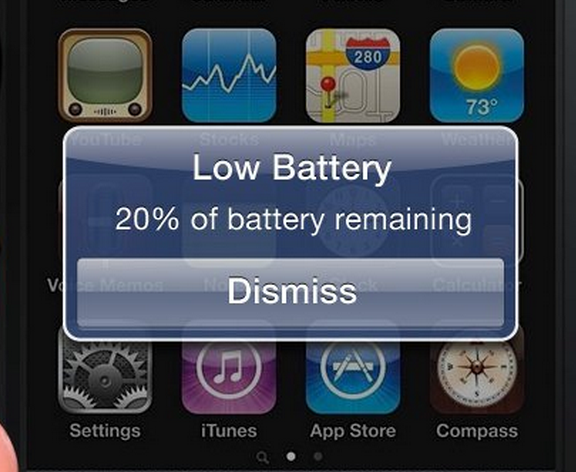Will the new airport phone battery regulations FINALLY give us phones that work the whole day?

All across the news today is this announcement from British Airways (see Telegraph):
British Airways says it will turn away passengers booked on US-bound flights if their electrical devices will not switch on
The underlining issue being that if your phone doesn’t switch on, it could theoretically contain explosives. Or something like that.
I wonder if this could FINALLY be the turning point for the industry to actual focus on battery life?
We’ve been slowly moving that way and increasingly it’s rather exciting to see the “mAh” figures gradually tipping over the 2,000 mark for most batteries. Still, when you’ve just added an even more powerful screen or a quad-core chip that will draw more of that battery, it can be a zero sum game.
Samsung is currently marketing the fact they can make your phone “shitter” so that you can stay connected longer because the battery won’t get you through the average day. The screen goes black and white, the capabilities of the phone (all the fancy face tracking stuff, etc) are switched off so that your £600 device can maintain a cellular connection (See: The Wall Huggers video).
What will it take for me to be able to use my iPhone or Galaxy S5 for more than a few hours continuously without the battery hitting 20% or worse?
As anyone who experiences this regularly, the moment you get the ‘Battery low’ (“Dismiss”) prompt at 20% on an iPhone, it’s game over. You can more or less see the battery percentage descend every 3 minutes if you’ve still got 4G rocketing away and you’re busy processing a video on the phone.
What will it take?
5,000 mAh? To get through a decent day of average use?
Could we see some innovation in power delivery and management? We’ve seen manufacturers testing the water recently with some beefier devices — Moto’s RAZR Maxx (3,300 mAh)– but not with the conviction that I’d like to see.
I’d love to see Apple, Samsung or HTC actually put a stake in the ground on the issue of battery power. Maybe even Microsoft might like to get involved?
If we continue see headlines like the one above, I think we’ll soon see some adjustments in the marketplace placing a higher focus on battery consumption.
British Airways appears to have been especially direct with it’s new ruling. It’s not quite clear what the other airlines are doing although I imagine they could soon adopt the same policy.
Here’s the Telegraph with more detail:
But on its website, BA said: “If your device doesn’t power up when you are requested to do so, you will not be allowed to fly to the US on your original service. Our customer services team will look after the rebooking of your travel arrangements.”
It added: “If you are flying to the US as a transfer customer, especially those on long journeys, please make sure that you do not deplete power in your devices while on the first part of your journey.”
So let’s be clear what’s going on here… Let’s say I’m flying to Las Vegas via JFK, right?
That’s something like 7 hours from Heathrow to New York, then I need to hang about for… an hour… two hours, whatever, then get on another 5-6 hour flight to Vegas.
Based on BA’s advice, you’d need to ensure your phone’s battery is sufficiently charged to get through security screening at JFK to board the second leg of your flight.
So you either need to allow enough time to get your phone charged properly when you’re on the ground. Or you need to fly Business so you’ve got access to a USB charge point in your seat. Or you need to carry a spare battery. Or you need to carry a Mophie Powerstation mobile battery.
Speaking of which… if you can hide explosives in a mobile phone, why couldn’t you do so in a mobile battery? You can switch on a mobile phone to prove it works. You can’t easily ‘switch on’ one of these mobile battery packs. Yeah you can make it flash a few lights, but you’d need to X-Ray it to see what’s inside.
It’s going to get interesting.
And if you’re a frequently flyer this whole battery issue is likely to get annoying really fast.
What do you reckon?




